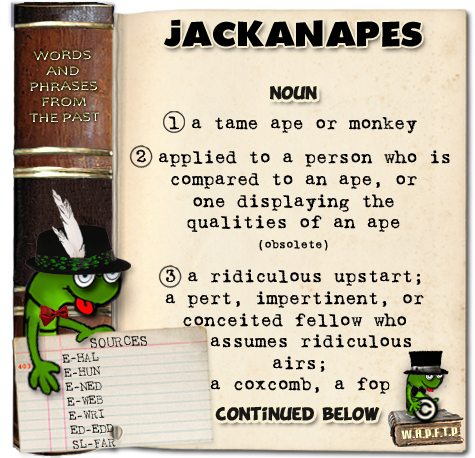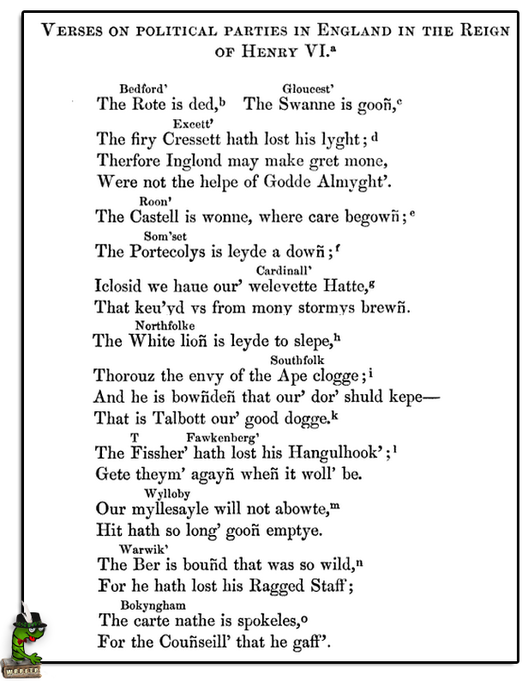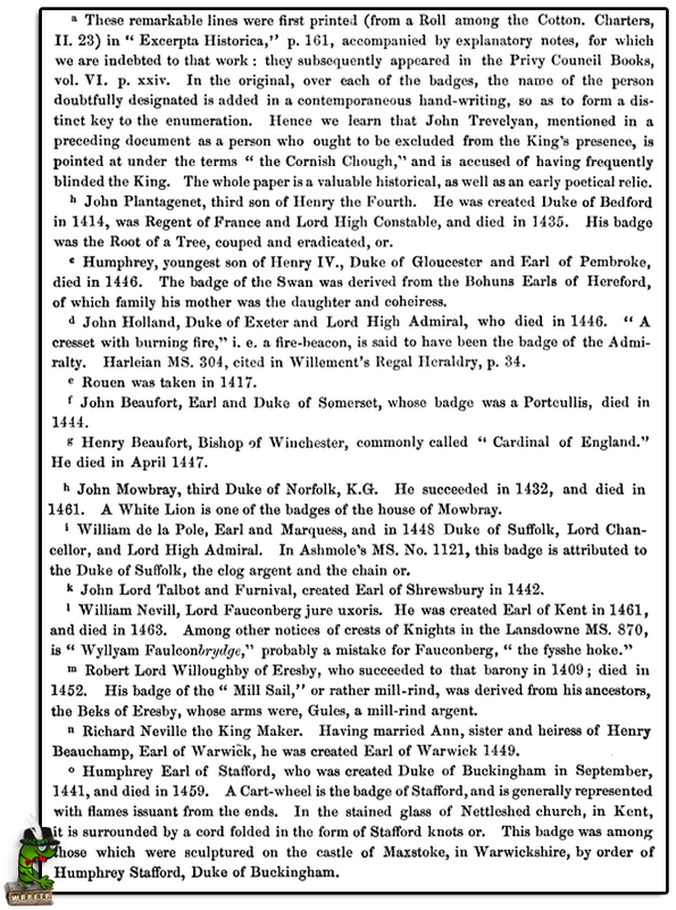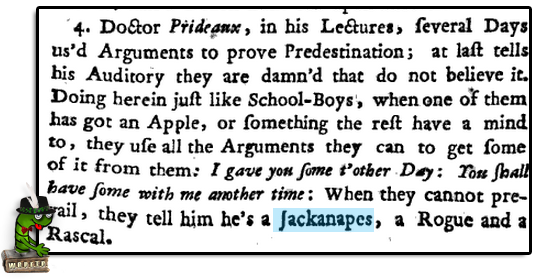|
DEFINITIONS CONTINUED NOUN 4. a playful term for a pert, forward child; a mischievous child; a 'monkey' 5. a clownish fellow; one easily gulled (dialect) 6. applied contemptuously to a crucifix (obsolete) also Iacke an apes, Iacke Napes, Iackenapes, Iack Napis, Iack Napys, Iac Napes, jacanapes, Jack-a-nape, Jack an Ape, jackanaps, Jack and Apes, jackinapse CLICK HERE FOR KEY TO SOURCES from E-NED: Precise origin uncertain. So far as yet found, the word appears first as an opprobrious nickname of William de la Pole, Duke of Suffolk (murdered 1450), whose badge was a clog and chain, such as was attached to a tame ape. Hence, in a poem of 1449 (see First Documented Use), in which other noblemen are denominated by their badges or heraldic emblems, as the Swan, fiery Cresset, Portcullis, Wheat-ear, etc., Suffolk is styled ‘the Ape-clogge’, and in somewhat later satirical invectives is referred to as an ape, and entitled Jack Napes; this being inferentially already a quasi-proper name for a tame ape, as it is seen to be in 1522. (The converse hypothesis, that Suffolk was for some other reason called ‘Jack Napes’, and that this nick-name was transferred from him to the ape, does not, on a review of the facts, seem probable.) But of Jack Nape or Napes, and its relation to an ape or apes, no certain explanation can be offered; it was perhaps, in its origin, merely a playful or whimsical name for a tame ape, and the n- might arise as in nunckle and neye (birds-nie, pigs-ney), or as in the by-names Ned, Noll, Nell, and the -s might be in imitation of the -s of surnames such as Jakkes, Hobbes, Symmes, etc., already in use, so that ‘Jack Napes’ parodied a human name and surname. If this was the standing of the name, it is easy to understand that it might never attain to literary use, till it became the nick-name of Suffolk. Be this as it may, the fact remains that Jack Napes is the earliest form, of which Jack-a-Napes, Jack of Napes (? Naples), Jack-an-ape, Jack-and-apes, are later perversions, apparently attempts of ‘popular etymology’ to make the expression more intelligible. (c 1449 - Political Poems (Rolls) [poem referred to in above Etymology] From: Works of the Camden Society Trevelyan Papers Prior to A.D. 1558 Edited by J. Payne Collier, 1862 P. 66) From: Table-Talk:
The Discourses of J. Selden (a 1654) The Third Edition, 1716 Predestination P. 100
0 Comments
Leave a Reply. |
Archives
September 2021
|






